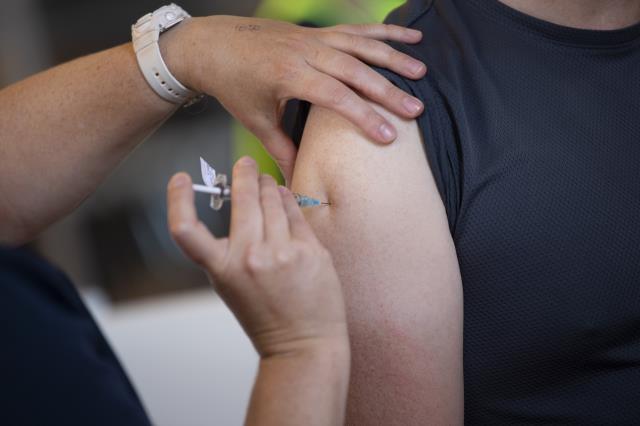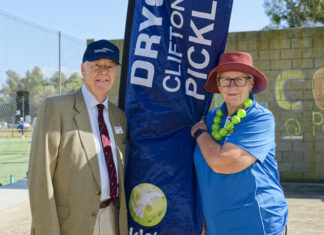Workers in high-risk environments will be required to get a booster vaccination to go to work under new pandemic orders coming into effect this week.
Health Minister Martin Foley said the new orders would come into effect from Thursday and would require people working in healthcare, aged care, disability, emergency services, correctional facilities, quarantine accommodation, and food distribution to receive a third vaccination to be allowed to work onsite.
“This is a sensible extension of our existing vaccination requirements – ensuring our critical workers and the vulnerable community members they look after are protected,” Mr Foley said.
Workers who are eligible for their third dose on or before Wednesday will have until February 12 to get jabbed, while workers who were not yet eligible would have until March 12.
Different deadlines will be in place for residential aged care workers, who must be triple vaccinated by March 1, and healthcare workers, who have until March 29.
Retail supermarket workers are not included in the mandate, but all other workers in the food distribution process, including manufacturing, warehousing and transport workers are.
The selected industries were the first in the state to be required to be fully vaccinated to go to work last year.
Mr Foley said the mandate recognised certain industries posed increased risks of COVID-19 to critical workers and vulnerable people in the community.
While not mandated, Mr Foley said all Victorians were encouraged to get a booster shot once they became eligible.
He also announced some changes to restrictions that would also come into effect on Thursday.
Indoor dance floors at hospitality and entertainment venues will no longer be allowed, although indoor dance floors at weddings will still be permitted.
Mr Foley said the change reflected the restrictions already in place in New South Wales and did not impact a venue’s ability to operate or its existing density limits.
“Victoria is open and the community is encouraged to support businesses in a COVIDSafe way. Closing indoor dancefloors is a simple but important step – we know they pose an extraordinary risk of mass transmission,” he said.
Further visitor restrictions will apply at hospitals and aged care settings.
Residents at aged care centres will continue to be permitted up to five visitors per day, but visitors must return a negative RAT result before entering.
If no RATs are available at the facility, residents will be permitted no more than two visitors.
Visitors in hospitals must have received two doses of the vaccine or must return a negative RAT result before entering.
Adult visitors who are not fully vaccinated must wear an N95 mask during their visit. Standard face masks continue to be mandated for children aged eight and above.
To ensure Victorians can continue to access essential food supplies, workers in the manufacturing, distribution or packaging of food and beverages, including retail supermarket workers, may be exempted from close contact isolation requirements in order to attend work if it is necessary to allow operations to continue.
To reduce risks, exempted workers must be asymptomatic, undertake daily RATs for five days and return a negative result prior to attending work. They can’t enter shared break areas, and employers are asked to facilitate solo break time.
Face coverings must be worn, using N95/P2 respirators if possible. Both the worker and workplace must consent to the worker’s return.
This new close contact isolation exemption for asymptomatic food distribution workers is similar to the arrangements already in place for critical healthcare workers.









